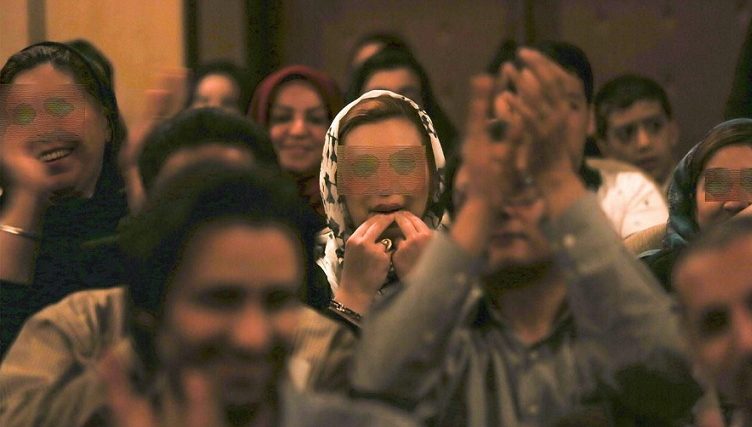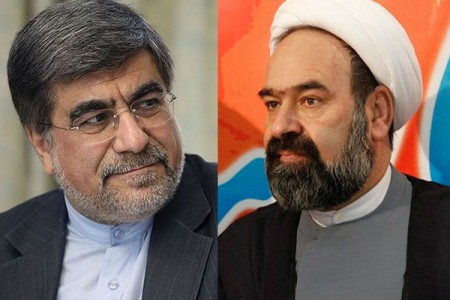October 14, 2016

A cultural official in Qom has been forced to resign by clerics angry over his approval of a concert in the religious city. It is the latest in a series of concert clashes between hardliners and President Rohani’s Administration.
Qom, 150 kilometers south of Tehran, is the largest center of Shia scholarship and seminaries in the world. So in the theocratic world of the Islamic Republic, it is unlikely a politician could survive if a consensus of Qom religious authorities openly condemned him.
The controversy began September 27, when a concert by the group Mahbod took place in Qom. Concert organizers and performers must obtain a permit from the Ministry of Culture’s provincial bureau. Mahbod had obtained the required permit for the performance and the concert went ahead. The media referred to the performance as the first “official” concert to take place in Qom.
Since Rohani took office three years ago, Culture Minister Ali Jannati has been trying to open up the country to more
live music. But in recent months, he has been hit by a backlash from many in the clergy.
Over the last year, religious authorities have canceled a number of concerts, mainly in the holy city of Mashhad but elsewhere as well, even though legally they have no power to do so.

The Mahbod concert in Qom was different: The performance went ahead and the media reported on it, complete with photographs documenting the event. The clergy only erupted after the concert, and photos showing such things as a young woman with two fingers in her mouth performing a piercing whistle.
IranWire reports that one of the first voices to rise up against the concert was that of 97-year-old Grand Ayatollah Lotfollah Safi Golpayegani. He considers any music used for the purposes of entertainment to be against Islam. Two days after the concert, he said live concerts fill the heart of “the Imam of Time” — whom Shiites revere as the messiah who will one day return to rule the Earth — with sorrow. He can only be made happy again, they say, if action is taken against such sinful acts.
Then Ayatollah Mohammad Yazdi, the former head of Iran’s Judiciary and the current president of the Society of Seminary Teachers of Qom, spoke out. He sharply criticized President Rohani and demanded that Abbas Daneshi, the head of Qom’s Bureau of Culture and a clergyman himself, resign. He also issued a warning that any apologies Daneshi or Rohani extended should be firmly rejected.
Yazdi did not spare the minister of culture. He told Jannati: “Most of your actions are sinful ones.”
Daneshi tried to salvage what he could of the situation. “We respect the concerns of religious authorities,” he said—and went on to deny that any real concert had taken place. The Mahbod performance was just “a few revolutionary songs based on the exalted poetry of Hafez and Rumi,” he said. “The artists observed the dignity of Islam and we support such fine programs.”
But his justification made no difference. “I have seen very offensive pictures from this concert,” Ayatollah Yazdi said.
“If you want to make the youth happy, give them jobs and marriage instead of concerts,” said Grand Ayatollah Hossein Nuri-Hamadani. And Ayatollah Ahmad Khatami, one of Tehran’s Friday prayer leaders but no relation to the former president, Mohammad Khatami, declared that insulting Qom was part of the agenda of world “arrogance,” a code word for hostile Western countries.
On October 1, the Society of Seminary Teachers of Qom issued a statement condemning the concert and declaring that Culture Minister Jannati must be held personally responsible. The next day, Qom’s deputies in the Majlis—including Speaker Ali Larijani—wrote their own letter of condemnation, and demanded that the minister take action against all guilty parties, especially Daneshi, Qom’s Culture Bureau chief.
After 10 days of these attacks, Daneshi this week gave up and submitted his resignation.
Ever since President Rohani’s 2013 election, he has struggled to improve relations with some of the country’s most influential clerics, and music has often been a pressure point.
IranWire reported that, previous to the most recent tiff, the Society of Seminary Teachers had written three confidential letters to Rohani, questioning his domestic and foreign policies. In response, Mohammad Naha-vandian, Rohani’s chief-of-staff, traveled to Qom in August. After a meeting with clerics, a member of the society was quoted as saying that his colleagues had reacted positively to what they had been told. But the latest clash suggests otherwise, and clearly demonstrates that any improvements in relations can easily be shaken or undermined.






















